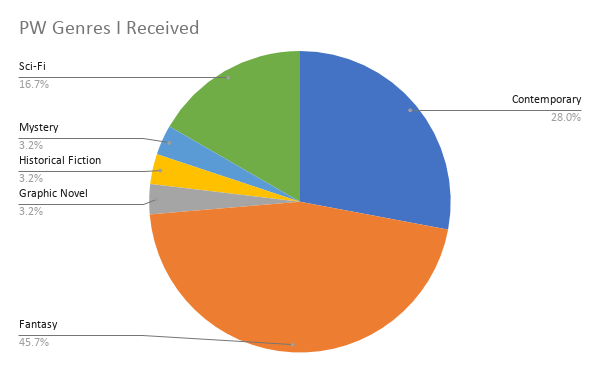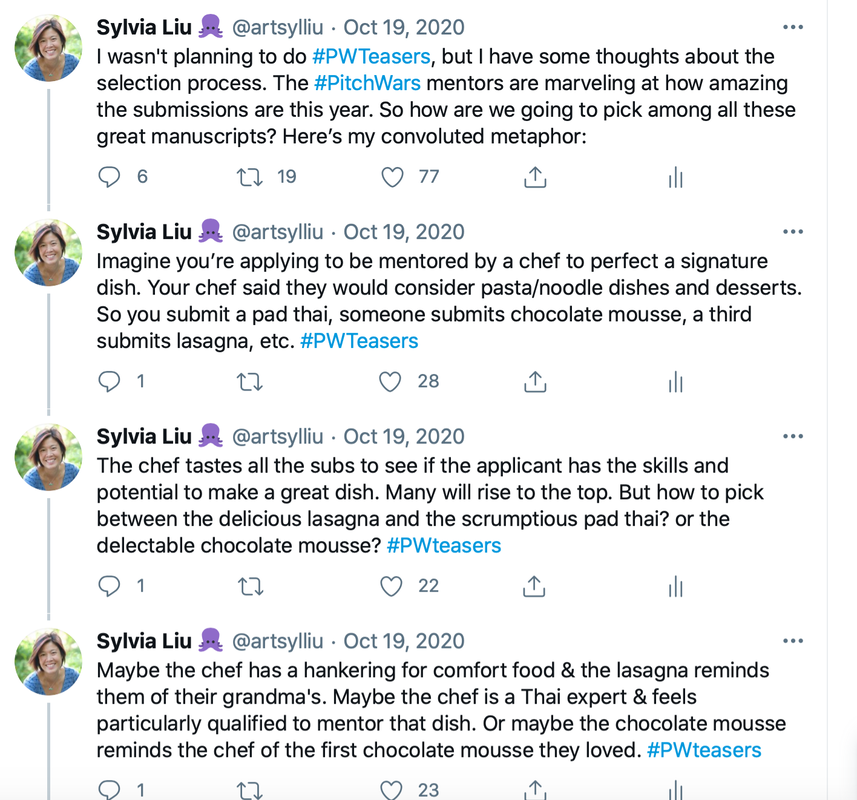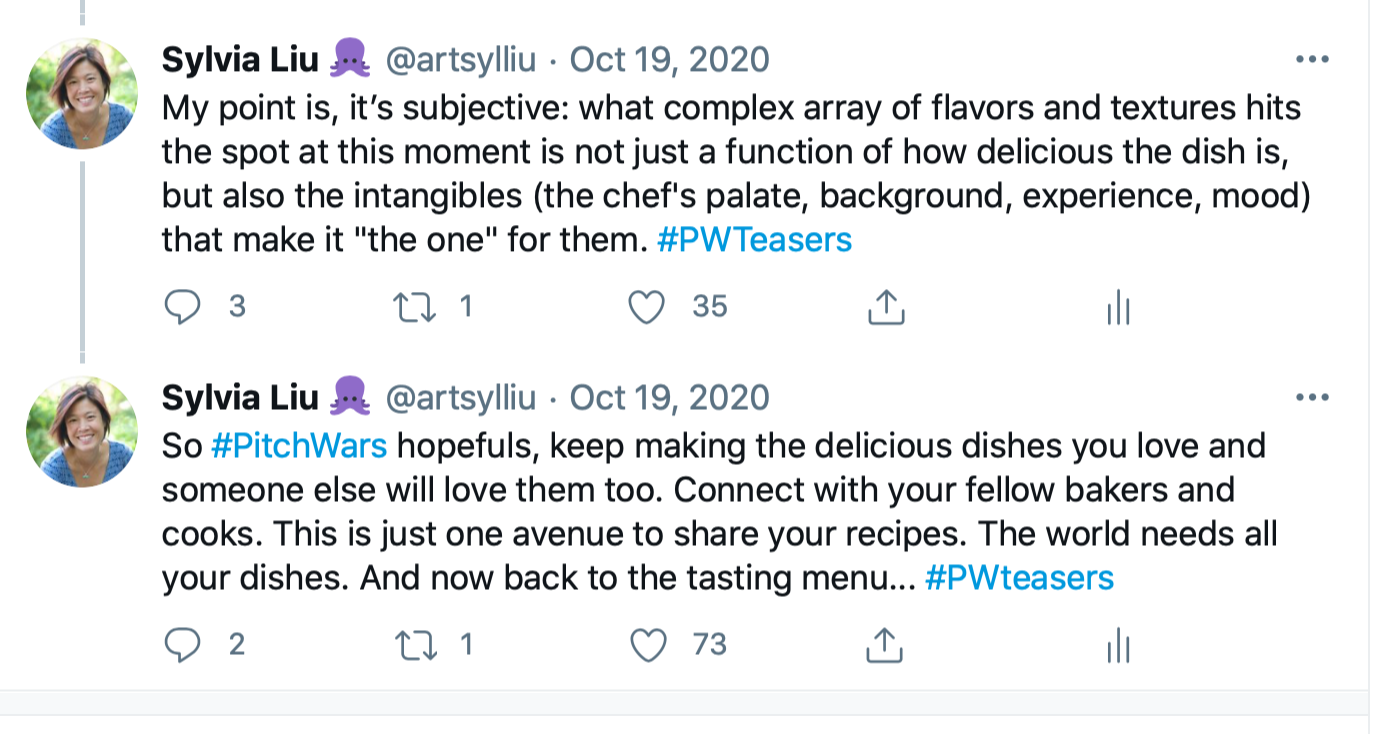|
This fall, I'm a mentor in Pitch Wars, where middle grade, young adult, and adult writers apply to be mentored by established authors. If chosen, the mentees will revise their manuscripts for three months to prepare for an agent showcase in February 2021. We announce the mentee selections on Nov. 7 and I can't wait! As a middle grade mentor, I read 185 applications, which consisted of a query, a synopsis, and the first ten pages of the manuscript. The breakdown by genre is shown above. My two big takeaways from reading these applications are (1) it's all so subjective and (2) beginnings are important: 1. It's all so subjective. Authors have heard this over and over, but now I know how true it is. Aside from a small handful of manuscripts where the writing just wasn't ready (like 1%), the vast majority of pages I read had the basic writing craft down. So what made some stories stand out (to me) more than others? The top reasons I was drawn to a story:
Another way to think about this is an analogy I made on Twitter to picking a favorite food: So for those of you who may be in the query trenches, or who are Pitch Wars hopefuls, remember that every single person who reads your story or query will have a different reaction to it, depending on their interests, personalities, and life histories. Don't give up if you don't get picked this time around, because there are SO many ways to get your voice heard and your books out in the world. 2. Beginnings are critical (tip: create a question for readers, add tension, & reveal character). Once you interest an agent in your story idea, how do you hook them with your writing? Agents inundated with queries will usually read sample pages until they lose interest. My tip for writers to create a compelling first page and scene is to raise questions, create tension, and reveal character right away. Do this in your first sentence, if possible. For example, the first sentence of my MG sci-fi (coming out Summer 2022) is: Hana was late—and nowhere she was supposed to be. This sentence creates questions: Why is Hana late? Where is she that's she's not supposed to be? It creates tension: is she going to get in trouble? Is she in danger? It reveals character: Hana is someone who goes where she's not supposed to be. Do the same with your first scene. Give your main character a small quest. It should not be the main quest of your novel, but it should be something that feels important to the character at the moment and have it raise questions, create tension, and reveal character. It's also an opportunity to build the world. In my novel, Hana's immediate goal is to find the perfect scrap in a junkyard for a bird automaton she's making for her sister, who she feels is slipping away as her sister is about to have her mind connected to the multiweb. She runs into a tough scavenger girl who snatches the piece from her. This scene introduces the futuristic world and premise and gives Hana a goal that is thwarted. Hopefully, readers will want to read on to find out what happens next. When reading Pitch Wars entries, the best entries made me want to keep reading to answer my questions or to find out more about the character or world. To read more from my November 2020 newsletter, check out out the full post: What I've Learned as a Pitch Wars Mentor and or sign up to receive email updates of future newletters.
0 Comments
Leave a Reply. |


